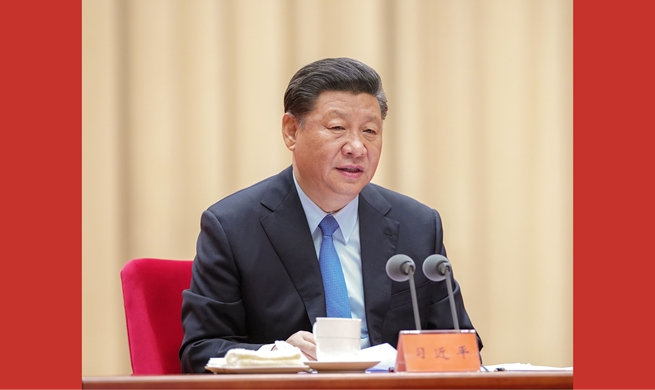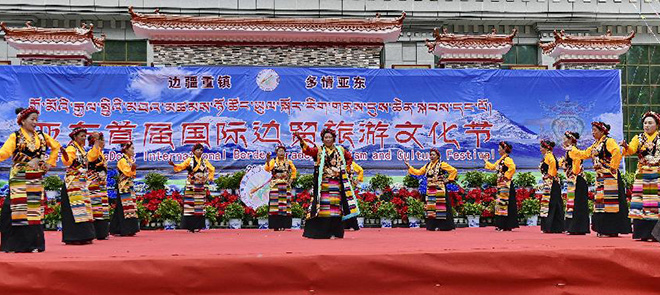by Xinhua writers Zhao Qing, Lin Hao
SINGAPORE, June 2 (Xinhua) -- As the 18th Shangri-La Dialogue concluded here Sunday, representatives were trying to answer one question: How to maintain peace, stability and prosperity in the Asia-Pacific region in an increasingly fractured world?
Chinese State Councilor and Defense Minister Wei Fenghe, the first Chinese defense minister attending the dialogue in eight years, gave his answer: People in the Asia-Pacific could strive to build a community with a shared future to that end.
Building a community with a shared future for mankind, a concept put forward by Chinese President Xi Jinping, has been followed by China with pragmatic development strategies and initiatives. One example of this would be the Belt and Road Initiative, which has been welcomed by many countries around the world, including those in the Asia-Pacific.
China is committed to regional and world stability and prosperity. Where there is an issue, China has always called for more dialogue, instead of resorting to or threatening violence. However, there are always some people trying to benefit from stirring up trouble in the region.
In his speech, the Chinese defense minister noted that some countries deliberately create division and hostility, cause confrontation, meddle in regional affairs, interfere in the internal affairs of others, and frequently resort to arms.
He rebutted the remarks of U.S. acting defense secretary Patrick Shanahan at the dialogue concerning the issues of the South China Sea and Taiwan, reiterating the determination of the Chinese government and military to safeguard national sovereignty, security and development interests.
Under the joint efforts of China and other countries around the South China Sea, mutual trust among regional countries has been notably strengthened, and the overall situation in the South China Sea is stable and improving. The normal navigation and overflight activities in the South China Sea region have long been smooth and uninterrupted.
Yet the United States has frequently dispatched warships and aircraft to the nearby airspace and waters of the South China Sea islands and reefs, and conducted close-up reconnaissance and targeted military drills. These acts are harmful to regional peace and stability.
China regards all countries, big or small, strong or weak, rich or poor, as equal members of the international community. While striving for common prosperity in the Asia-Pacific, all countries and people should respect the core interests and the security concerns of all.
Over the past 70 years since the founding of the People's Republic of China, China has never provoked a war or conflict, nor has it ever invaded another country or taken an inch of land from others. History has proven and will continue to prove that China will not follow in the path of the big powers seeking hegemony when it grows strong.
The world today is undergoing profound changes, especially a recent backlash against globalization and growing unilateralism and protectionism. The United States is currently displaying unilateralism, puts its own interests above those of others, and is withdrawing from international treaties and organizations. These willful acts are very harmful to the world structure and a shared future for mankind.
China has always embraced peace, cooperation, exclusiveness and mutual learning. Over the past 40 years, the China-U.S. relationship has been developing in a steady manner. The most valuable lesson China has learned from the relationship is that cooperation benefits the two sides while confrontation hurts both.
The relations between the Chinese and U.S. militaries have enormous influence over the security situation in the Asia-Pacific region. The U.S. side should meet the Chinese side halfway and aim for non-conflict, non-confrontation, mutual respect and win-win cooperation and make its military ties a stabilizing factor in the relations between the two countries.
The world is now undergoing profound changes unseen in a century. Building a community with a shared future for mankind, which was proposed by China, is a grand trend. It is also the right choice to ensure the harmonious co-existence of countries in the Asia-Pacific region as well as around the whole world.













